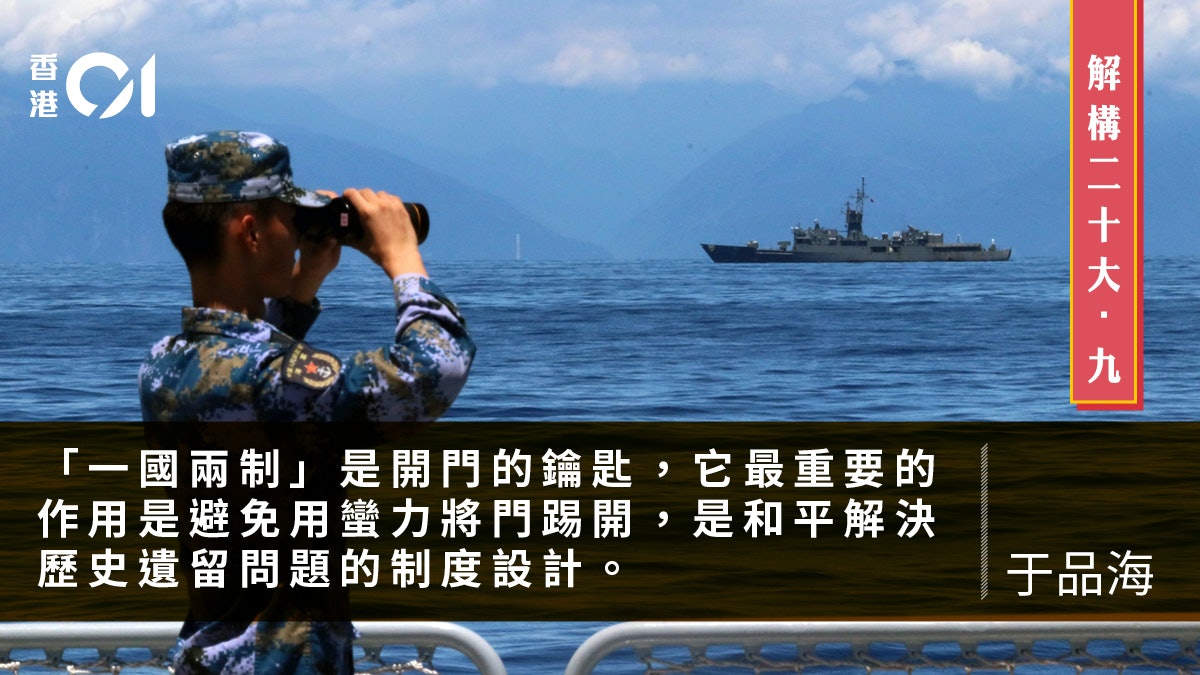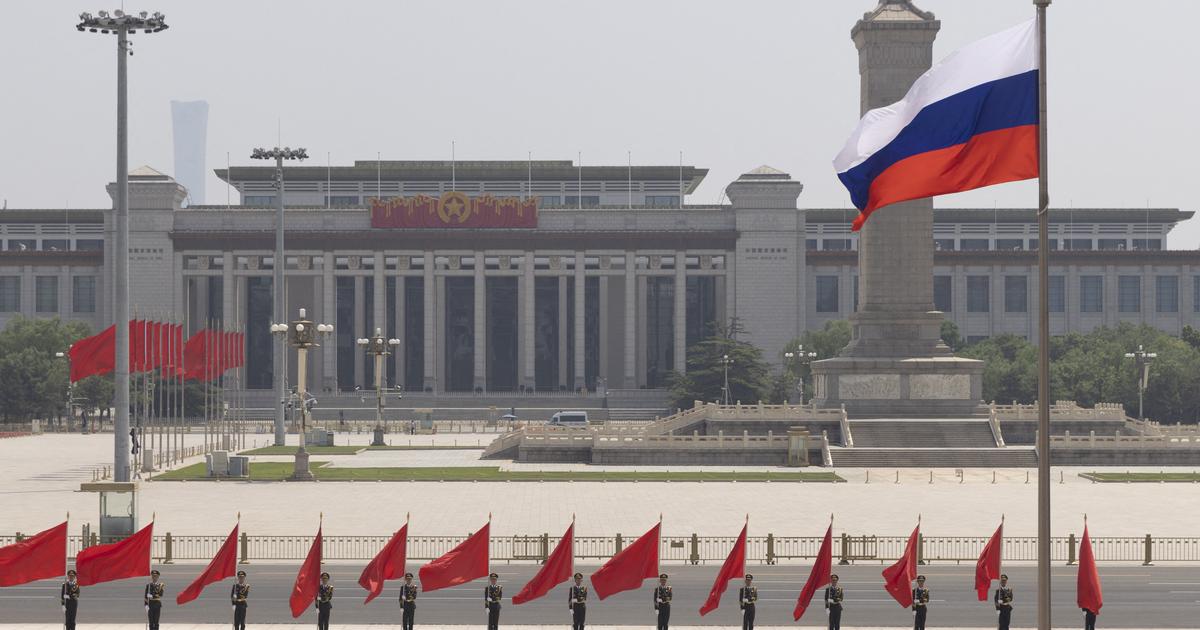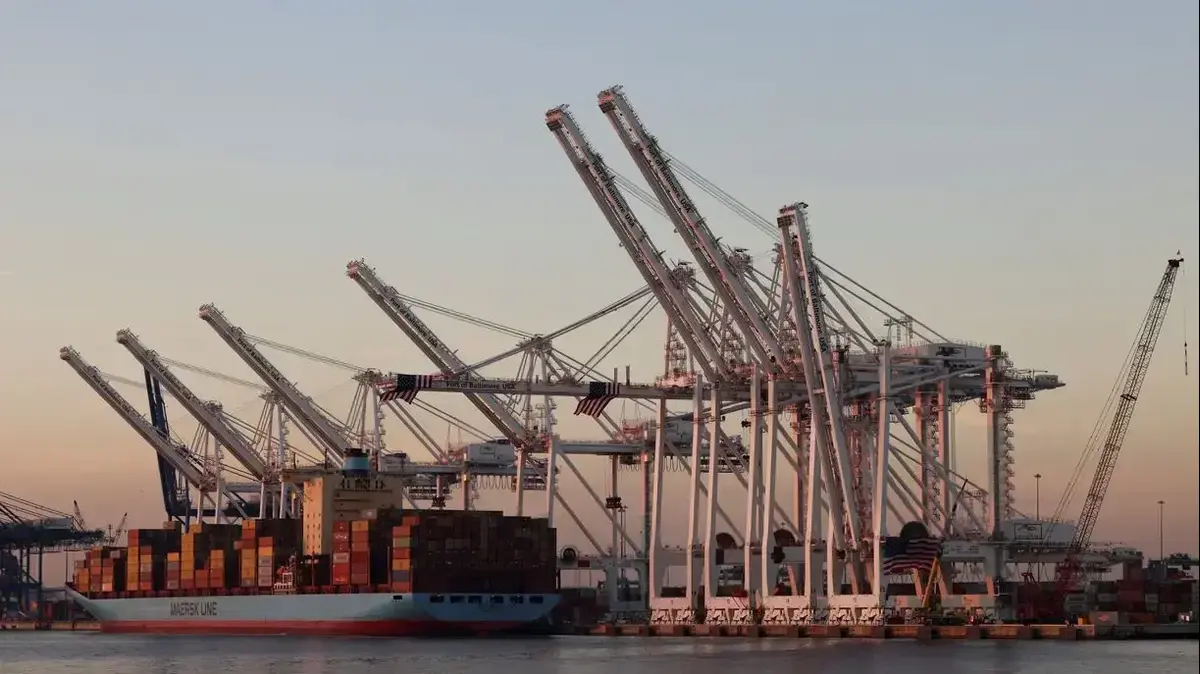[Editor’s Note] In October this year, General Secretary Xi Jinping delivered a report at the 20th National Congress of the Communist Party of China, detailing how he will lead the CCP to realize its vision of governing the country, indicating that the central task of the CCP in the future is to “unite and lead the The Chinese people will comprehensively build a modern and powerful socialist country, achieve the second centenary goal, and comprehensively promote the great rejuvenation of the Chinese nation with Chinese-style modernization.”
It may not be easy to understand the 20th National Congress report, which is more than 30,000 words in length, but it is the most direct document for understanding the strategic intentions and governance planning of the Chinese Communist Party in the coming period.
Why does the CCP, which takes Marxism as its theoretical banner, actively promote the Sinicization of the ideological field?
What is the long-term firm confidence shown by the CCP, and what is the difference between the "Chinese-style modernization" officially explained in the report and Western modernization?
How does the CCP understand Xi Jinping's "great changes unseen in a century", and what changes will China, which is at the center of the changes, bring to the world structure?
This series of articles revolves around these questions.
(Series Nine of Ten)
In the report to the 19th National Congress of the Communist Party of China, Xi Jinping set a timetable for the unification of Taiwan.
In his speech on the 40th anniversary of the publication of the "Message to Compatriots in Taiwan", he proposed the "Two Systems Taiwan Plan".
In order to counter the US House of Representatives Speaker Nancy Pelosi's visit to Taiwan, the CCP demonstrated possible military solutions to the split between the two sides of the Taiwan Strait, and conducted drills in response to US military intervention in the Taiwan Strait.
After Xi Jinping took office, he promoted the reform of the military, and the slogan of the PLA was changed to: If you are called, you can fight, and if you fight, you will win.
In the report to the 20th National Congress, Xi Jinping proposed an "overall strategy" for resolving the Taiwan issue.
In 2014, the Hong Kong Legislative Council rejected the Hong Kong constitutional reform plan proposed by the National People's Congress. After that, Hong Kong entered into more than five years of social turmoil. "Hong Kong independence" briefly became a specter hovering over Hong Kong.
This is Hegel's "negation of negation".
After being "denied", Hong Kong calmed down and began to re-understand "one country, two systems".
The 2014 white paper "The Practice of "One Country, Two Systems" in the Hong Kong Special Administrative Region" reminded Hong Kong people that the central government has overall governance power, which is not inconsistent with a high degree of autonomy, and is unified.
In his speech on July 1 this year and the report to the 20th National Congress of the Communist Party of China, Xi Jinping hopes that Hong Kong will promote two "breaking": "breaking the barriers of vested interests" and "solving deep-rooted contradictions and problems in economic and social development."
The report of the 20th National Congress also mentioned that there are "deep-seated institutional problems and barriers of fixed interests" within the CCP. The way to deal with it is to "comprehensively deepen reforms with great political courage." , dare to venture into dangerous shoals, dare to face new contradictions and new challenges, break through the shackles of ideas and concepts, break through the barriers of solidified interests, and resolutely break through the shortcomings of various systems and mechanisms." A "broken" is already on the verge of coming out.
Understanding One Country, Two Systems with a Philosophical Approach
Some people say that "one country, two systems" is a key, but it opens too many doors, just like "fifty years of change", if you don't understand it in a philosophical way, you will only lock yourself in the clouds.
The Taiwan and Hong Kong issues are different, but they must be unlocked with "one country, two systems".
People in Taiwan must accept "one country, two systems" to complete national reunification, and Hong Kong people must re-understand "one country, two systems" in order to "govern and prosper".
Many views have misunderstood Deng Xiaoping's proposal of "one country, two systems" as a helpless move. The Chinese Communist Party is in full swing today, but it still proposes the "Two Systems Taiwan Plan" and requires Hong Kong to improve "one country, two systems". The misunderstanding should not recur.
Some people once believed that the reform and opening up meant that the CCP gave up the socialist road. Later, it proposed common prosperity and preventing the disorderly expansion of capital. The same group of people believed that it was going back.
This strange phenomenon shows that if one does not understand the history and philosophy of the Communist Party of China, one cannot understand its thinking on governing the country.
The Fourth Plenary Session of the 19th Central Committee of the Communist Party of China identified "one country, two systems" as one of the thirteen "notable advantages" of "national system and national governance system".
The report of the 20th National Congress of the Communist Party of China proposed "Chinese-style modernization," which is "an innovative breakthrough in theory and practice since the 18th National Congress of the Communist Party of China."
The "significant advantage" of "one country, two systems" is one of the "Chinese characteristics", and it is an "innovative breakthrough" after reflection on specific practices.
The report of the 20th National Congress pointed out that "one country, two systems is a great pioneering work of socialism with Chinese characteristics. It is the best institutional arrangement for Hong Kong and Macao to maintain long-term prosperity and stability after the return of the motherland. It must be persisted for a long time."
Regarding the Taiwan issue, the report also pointed out: "Peaceful reunification, one country, two systems" "is the best way to achieve cross-strait reunification, and it is most beneficial to compatriots on both sides of the strait and the Chinese nation."
These developments and discourses have consolidated "one country, two systems" as an integral part of the "national system and national governance system", rather than a policy to solve individual problems.
However, even with such a sincere explanation, even knowing that reunification is the only option, Taiwanese society still rejects "one country, two systems" because it is unwilling to accept "reunification."
Hong Kong has returned to the motherland. Hong Kong people sincerely accept "one country, two systems", but they don't know how to implement it.
The Hong Kong court's recent trial of Li Zhiying's appointment of a foreign lawyer as a defense representative is a good case.
The central government has repeatedly reminded Hong Kong to "improve overall governance capabilities and governance standards." The Hong Kong government does not understand this. How can it understand the deeper "one country, two systems" and practice it in the governance of the SAR?
A Hong Kong official just used "not eye-catching enough" to explain the Supreme Court's judgment, making people dumbfounded.
Issues in Taiwan and Hong Kong must be resolved, and it will not be protracted, as there is always a timetable.
For Taiwanese society, what needs to be dispelled is the myth of "Taiwan independence" and "maintenance of the status quo" and the fact that the civil war between the two sides of the strait has not yet come to an end, instead of seeking a sword and thinking that the false statements made by the Taiwan independence camp since Lee Teng-hui will come true .
It is a pity that Taiwan has blindly rejected the cross-strait peace process so far, and cannot see any signs of finding its own position.
The situation in Hong Kong is even worse. Too many officials misunderstand that the central government's respect for Hong Kong's high degree of autonomy is tolerance for the level of governance.
Why is it worse?
Cross-Strait conflicts are at least in front of us, but Hong Kong and Beijing have yet to find a language of communication. "Soft boycott" is more difficult to deal with than "hard confrontation".
When Hong Kong and Taiwan become "major risk challenges"
The report of the 20th National Congress of the Communist Party of China considers the issue of Hong Kong and Taiwan to be the "major risk challenge" in the past five years, and the second and third largest risks immediately after the new crown epidemic and before "facing external blackmail, containment, blockade, and extreme pressure" challenge.
The report emphasizes that the central government is “effectively exercising overall governance over the (Hong Kong) Special Administrative Region in accordance with the Constitution and the Basic Law” and that in response to “severe provocations by Taiwan independence forces’ separatist activities and external forces interfering in Taiwan’s affairs,” the CCP “has further grasped the realization of the completeness of the motherland. A unified strategic initiative.” Hong Kong and Taiwan may consider their circumstances unique, but for the CCP, they are both challenges to resolve.
China's adversaries often end up regretting their underestimation of China's combat strategy and resolve.
"The world has undergone major changes unseen in a century" is the background of the times of the predicament in Hong Kong and Taiwan.
In recent years, Xi Jinping has often used "walking a hundred miles and a half ninety" to motivate the team, asking them to maintain strategic determination and use the spirit of struggle to complete their missions in one go.
But with such strict requirements, it is difficult to find fellow travelers in Hong Kong and Taiwan.
The Communist Party of China can only exercise full governance power and formulate the "Hong Kong National Security Law" to deal with the riots in Hong Kong.
When dealing with the challenge of reunifying Taiwan, the CCP "firmly holds the dominance and initiative in cross-strait relations" and "will never promise to renounce the use of force, and reserves the option to take all necessary measures."
"One country, two systems" is indeed a good key, but to open different doors, it must be adjusted and reformed in different periods.
The "one country, two systems" that "the river does not interfere with the well water" has been misunderstood. It needs to be adjusted to a positive, integrated, and active "one country, two systems".
Otherwise, will Hong Kong be willing to take advantage of the slope until the central government formulates a "Hong Kong version of the reform plan" for it?
"One country, two systems" is not a protective umbrella of vested interests. The capital power in the mainland is also huge. Once the CCP takes action, it will be effortless.
Regarding Taiwan, it is difficult to expect that the DPP, which is "pretending to be asleep," will finally understand the righteousness and accept the "one country, two systems" of "one China."
"Taiwan independence" is a sinner who undermines reunification. It is colluding with the United States and its allies who are unwilling to see China's rise, forcing the CCP to use struggle methods to deal with it.
As long as you carefully read the four parts of the 20th National Congress report on national security, national defense, diplomacy, and "one country, two systems," you will understand that they are separate attacks and combined attacks, explaining how the Chinese Communist Party responds to the "big change" and resolves external pressure to interfere in China's internal affairs. Obstacles to China's rise and national rejuvenation.
Understanding War Preparation and Peaceful Reunification with Dialectical Thinking
The report of the 20th National Congress of the Communist Party of China proposes to "struggle, prepare for war, and build at the same time," and calls for "comprehensively strengthening military training and preparing for war," "creating a strong strategic deterrent force," and "having the confidence and ability to safeguard national sovereignty, unity, and territorial integrity." It is a military preparation to resolve the long-term division between the two sides of the Taiwan Strait.
The Chinese Communist Party will never take it lightly, let alone take chances, in the overall arrangement of the country.
The explanations in the report of the 20th National Congress of the Communist Party of China are sufficient and complete, and no one will doubt Xi Jinping's determination to resolve the split between the two sides of the Taiwan Strait.
I am opposed to using "violence to control violence" to solve the problem, and I hope that there is no need to use force to end the split between the two sides of the strait.
But no one should allow the situation to deteriorate to the point where only maximum force can be used to resolve the problem.
The riots in Hong Kong in 2019 prove that the central government adheres to the rule of law in Hong Kong. Its strategic determination is beyond anyone's imagination. In the end, it still solves the dilemma through legislation.
To resolve the split between the two sides of the strait, the military solution is a means of ensuring peace, and no one should stop it. What's more, the conflict between China and the United States will not start because of the reunification of the two sides of the strait, nor will it end because of the split between the two sides of the strait.
"One country, two systems" is the key to open the door. Its most important function is to avoid kicking the door open with brute force. It is a system designed to peacefully solve problems left over from history.
The experience of Hong Kong in the past 25 years is not the most ideal case, but at least it shows that the reunification is peaceful and the reunification is orderly. However, if someone wants to hit the wall, no one has the ability to stop it.
The situation in Taiwan is of course different, but the differences are not so great that the key to "one country, two systems" will fail.
In the process of resolving the split between the two sides of the strait, "seeking common ground while reserving differences, and unifying opposites" is the smart way, and "one country, two systems" is designed for this purpose.
Deconstructing the twenty series of articles:
Deconstruct the 20th National Congress.
1|Why should we read the report of the 20th National Congress of the Communist Party of China and deconstruct the 20th National Congress.
2|From the structure of the report to sort out the overall context and deconstruct the 20th National Congress of the Communist Party of China.
3|The Sinicization and Deconstruction of the Chinese Communist Party's Ideology at the 20th National Congress of the Communist Party of China.
4|Understanding how the Chinese Communist Party has been in power for a long time and deconstructed the 20th National Congress.
5|What is the new development concept and new development pattern deconstruction of the 20th Congress.
Six|Comparative Deconstruction of Two Kinds of Modernization.
7|Chinese-style modernization: deconstruction of spirit, society, nature, and peace at the 20th National Congress of the Communist Party of China.
Eight|The "big change" in China's diplomacy deconstructs the 20th National Congress of the Communist Party of China.
9|One country, two systems is a significant advantage of Chinese-style modernization















